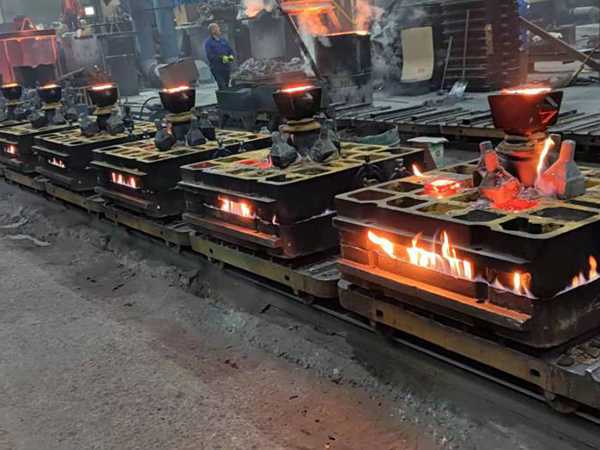The Uses of Resin-Coated Sand A Comprehensive Overview
Resin-coated sand is a specialized type of sand that has been coated with a resin that enhances its properties for various industrial applications. This innovative material has gained significant traction in the foundry industry and other sectors due to its superior performance characteristics compared to traditional sand. In this article, we will explore the primary uses of resin-coated sand, highlighting its benefits and the industries that rely on it.
1. Foundry Applications
One of the most prominent uses of resin-coated sand is in the foundry industry. It is extensively employed for making molds and cores for metal casting processes. The resin coating provides several advantages over conventional sand
- Strength and Durability The resin increases the strength and rigidity of the sand, allowing for the production of complex shapes and fine details that are critical in metal castings. This leads to better surface finish and dimensional accuracy of the final products.
- High Thermal Stability Resin-coated sand can withstand the high temperatures involved in metal casting. This ability reduces the likelihood of sand deformation during the casting process, ensuring a more consistent and reliable mold performance.
- Reduced Emissions Traditional sand can release harmful pollutants during the casting process. In contrast, resin-coated sand emits significantly fewer pollutants, making it a more environmentally friendly option.
2. Automotive Industry
The automotive sector is another significant consumer of resin-coated sand. It is often used for manufacturing foundry cores and molds for various automotive components, such as engine blocks and transmission cases. The benefits of using resin-coated sand in automotive applications include
- Enhanced Surface Finish The fine particle size and uniformity of resin-coated sand lead to smooth, high-quality surfaces on cast automotive parts. This reduces the need for extensive machining and finishing operations, saving time and resources.
- Precision Engineering The strength and resilience of resin-coated sand allow for intricate designs and high-precision components. As automotive manufacturers strive for lighter and more efficient vehicles, resin-coated sand supports advanced engineering requirements.
Beyond metal casting, resin-coated sand has found its way into the construction industry, particularly in the production of precast concrete. It is utilized as a fine aggregate in concrete mixtures, where its properties contribute to enhanced performance
resin coated sand uses

- Improved Workability The resin-coated sand enhances the workability of concrete, making it easier to mix and pour. This is especially beneficial in complex structures requiring intricate forms.
- Increased Durability Concrete mixed with resin-coated sand exhibits higher durability and resistance to wear, making it suitable for high-traffic areas and structures exposed to harsh environmental conditions.
4. Recreational and Thermal Applications
Resin-coated sand is also used in various recreational and thermal applications. For instance, it is utilized in the manufacture of artificial turf, providing a stable, reliable base that allows for optimal performance of the turf. The sand's properties contribute to the durability and long lifespan of artificial grass systems.
Moreover, resin-coated sand can play a role in thermal insulation applications due to its high heat resistance properties. It is sometimes used as a thermal barrier in industrial processes, helping to maintain desired temperatures in environments where insulation is critical.
5. Advantages of Using Resin-Coated Sand
The widespread adoption of resin-coated sand across various industries can be attributed to its numerous advantages
- Consistency The manufacturing process of resin-coated sand ensures a consistent product, reducing variability and improving quality control.
- Customization Resin-coated sand can be tailored to meet specific requirements, including different resin types, coatings, and sand particle sizes. This customization allows industries to optimize their processes and products effectively.
- Cost-Effectiveness While the initial investment in resin-coated sand may be higher than traditional sand, the long-term savings due to reduced waste, enhanced quality, and lower emissions make it a cost-effective choice.
Conclusion
In conclusion, resin-coated sand is a versatile and high-performance material with a wide range of applications across various industries, particularly in foundries, automotive manufacturing, and construction. Its ability to enhance the mechanical properties of molds and cores while providing environmental benefits makes it an increasingly popular choice. As technology continues to evolve, we can expect further innovations and applications for resin-coated sand, solidifying its role as a vital material in modern industrial processes.
Post time:Лис . 07, 2024 19:11
Next:Cast Members of the 2014 Movie Sand Castles
